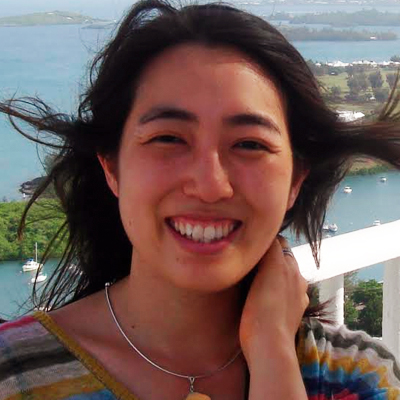Boosting the plant immune system against disease
The use of natural products has been the single most successful strategy in the discovery of novel medicines. A startling 25% of our medical drugs today come from plants, including many anti-cancer agents, but hundreds of thousands of plant natural products have not yet been discovered. In addition, 95% of the human proteome and most of the secreted plant proteome are modified by similar glycans, including nearly all of the immune sensors. To improve human medicine, agriculture and smart materials, Dr. Nicole Clay, of Yale University, uses functional genomics, glycomics and metabolomics to build glycan-controlled immune sensors for greater disease resistance, and to engineer gene regulatory networks for the generation and capture of chemical innovation. In short, by taking into account the glycome and the metabolome and decoding their languages, Dr. Clay’s research is not only making strides towards understanding the origins of many human diseases that are not directly encoded in the languages of DNA and proteins, such as allergies, Alzheimer’s disease, asthma, autism, diabetes, Lou Gehrig’s disease, multiple sclerosis, Parkinson’s disease, and rheumatoid arthritis, but is also helping to create novel medicines to combat them.
As a young investigator, Dr. Clay has already been awarded for her rigorous science by being honored with the Elsevier Phytochemistry Young Investigator award in 2014. Perhaps most exciting about her innovative research in glycomics and metabolomics are Dr. Clay’s efforts to enter fields of biology that are underexplored in a post-genomic era, and to tap an underutilized but proven source of chemical wealth. With the advent of plant “molecular pharming” (the production of biopharmaceuticals in glyco-engineered plants), her research is likely to have a startling impact on applications for the future of human medicine, agriculture, bioenergy and smart materials.
Current research includes:
-
Evolutionary Toolkits for Chemical Innovation: Hundreds of thousands of novel plant natural products have yet to be discovered, and gene regulatory networks are the most complex, extensive control systems found in nature. Dr. Clay is uncovering conserved gene regulatory networks that control plant secondary metabolism, and using them to produce and stabilize novel natural products.
-
Glyco-engineering Immune Systems: Nearly all of the “pathogen-sensing” immune receptors on the surfaces of plant and mammalian cells are modified by glycans. These glycans carry crucial information for protein folding and stability, internal sorting and export to the cell surface, and receptor activity. Dr. Clay is translating the glycan code, and remodeling the glycans on these receptors to impart new receptor functions.
Bio
Dr. Clay has always been interested in languages and their connection with creativity, and like many of her generation was fascinated by the genetic code and its potential to unlock the mysteries of life. Her initial interest in plants and fascination with languages can be traced back to her grandparents who were citrus and vegetable farmers on the sub-tropical, volcanic island of Jeju, South Korea. Jeju Island has half of the Korean vascular plants and 200 species of plants indigenous to Korea still growing naturally there. Dr. Clay’s vivid memories from her childhood of drying hot red peppers in the sun, pickling perilla leaves in soy sauce, peeling freshly picked hallabongs (a variety of mandarin orange), and eating sliced tomatoes sprinkled with sugar for breakfast all color her current passions for using plants to study the glycan code on immune receptors and gene regulatory networks in plant metabolism in order to better understand plant health and disease.
Dr. Clay holds to a reformed presbyterian understanding of the Christian faith and is a life-long naturalist, collecting leaves, seeds, shells, and banded rocks around the world. In her free time, Dr. Clay enjoys hiking in National Parks with her mom and sister or walking along the Atlantic shoreline and Connecticut River with her husband and two Welsh corgis. She also enjoys watching figure skating and listening to punk (post-punk, hardcore, post-hardcore) rock music, commenting that it is fun to patronize arts that are accessible to the general public.
Website: http://campuspress.yale.edu/claylab/


